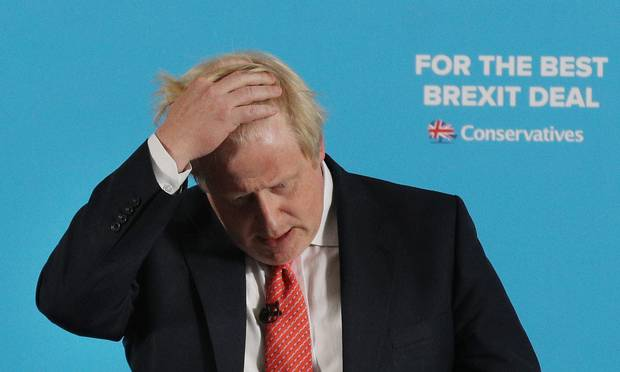How do we get to a general election after a Brexit extension is granted?

Since yesterday, there has been plenty of talk about a general election if we do see a Brexit extension to 31 January 2020, with the timing a bit tricky, though most reports are saying that we should see one before Christmas - if it does happen.
I reckon in part it is one of the reasons why Johnson met up with Corbyn yesterday, to get a feel of what Labour would do if the EU grants such an extension.
The meeting of minds ultimately ended in a whole lot of nothing for both parties but perhaps it gave Johnson an idea of what he needs to do in order to get to an election.
So, what are Johnson's options?
A straight up vote in parliament
A snap poll requires two-thirds majority in parliament and we have seen such a motion rejected twice already. But perhaps with a no-deal Brexit out of the way now, Labour may back the motion this time around.
However, with his own party in such a weak position, Corbyn faces some opposition among the party's ranks in trying to head to the polls.
A vote of no confidence
This is the interesting one as it is unlikely that opposition parties will be the ones tabling such a motion. Instead, we could see the government call a no-confidence vote in themselves in order to try and get to an election.
Why will they do such a thing?
The reasoning here is that such a decision only requires a simple majority (easier to achieve) to pass. However, it comes with a caveat that parliament has 14 days to form an alternative government instead.
Although extremely unlikely, the no-confidence motion risks Johnson being ousted if opposition parties can come together under one banner.
An election bill
This proposal would also only require a simple majority but as with any parliamentary bill, expect a host of amendments to follow that may scupper the electoral procedure.
As such, I doubt Johnson would pursue this route as it leaves for a lot of potential complications and isn't "a sign of strength" if one is to try and call for an election.
What does this all mean?
As you can see from the options above, there is no clear cut route to head to the polls for Johnson and the government. And in any vote, it is not a guarantee that everyone from his own party will be siding with him on this matter.
There are still quite a number of Tory lawmakers that reportedly wants Johnson to just get this Brexit deal over the finish line rather than toy around with the politics of things.
Given that line of thinking, it is no guarantee we will see an election if the EU does extend the Brexit deadline to 31 January 2020. However, it gives Johnson a good enough reason to call for one - especially now that he has a deal (in principle) on his side.
That said, as with any election in the world of politics, a lot can happen in the run up to polling day. While Johnson may be the overwhelming favourite to triumph now, there is still a degree of uncertainty over what could happen over the next few weeks.



